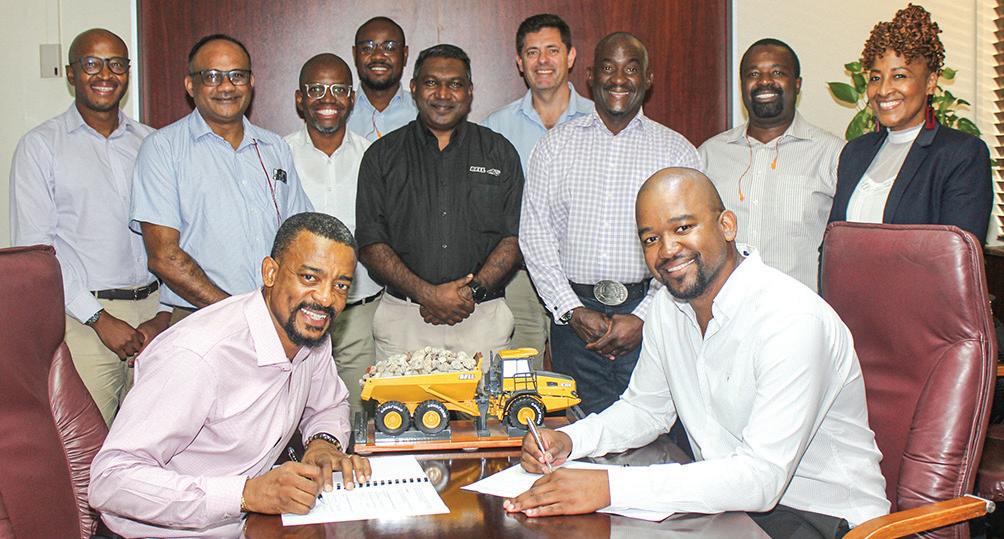
2 minute read
Manufacturing
Cellphones are now made in KwaZulu-Natal.
The Mara Group has invested more than R1-billion in a factory to manufacture cellphones at the Dube TradePort which is linked to the King Shaka International Airport. More than 300 permanent jobs will be created.
Advertisement
Dube TradePort attracted R7-billion in private and public sector investment between 2012 and 2019 and, with its ideal position for logistics operations, is expected to attract much more.
The province’s other Special Economic Zone (SEZ), the Richards Bay Industrial Development Zone (RBIDZ), has attracted a further R7-billion through four recent investments: Ubuhle Towels is a towel manufacturer; Elegant Afro Line makes chemicals and Wilmar SA is a manufacturer of edible oils. Nyanza Light Metal is investing R4.5-billion in the production of titanium dioxide pigments.
A new plant to make washing machines has created 75 jobs at the Durban plant of white-goods manufacturer Defy. The R121-million investment is part of a R1.2-billion investment programme which Arçelik Global, the Turkish company, has been following since it acquired Defy. The company has another plant in KwaZulu-Natal at Ezakheni (near Ladysmith) and at East London in the Eastern Cape.
Cipla, the Indian manufacturer of generic drugs, is building a new facility at Dube TradePort to complement its existing factory in Durban. LG Electronics South Africa has opened a R21-million factory and distribution centre in Cornubia, north of Durban.
Expansion of production normally heralds an uptick in the economy. Unfortunately, the fact that more aluminium products are going to be made by Hulamin’s extrusion facility in Pietermaritzburg reflects the fact that the company has closed one of its factories in another province. The company believes that its restructuring is working well, and its beverage business is thriving. Hulamin also makes rolled products at Edendale, Pietermaritzburg and Camps Drift.
The manufacturing sector contributes 17.7% to the provincial Gross Domestic Product (GDP) of KwaZulu-Natal. The strongest export sectors are base-metals (32% including aluminium), mineral products such as ores, vehicles and chemical products.
New opportunities in the Blue Economy (ship-building and maintenance, oil-rig repair and servicing) and the Green Economy (solar panel manufacture, solar, biogas and wind energy plant construction, management and maintenance, heating and cooling devices) are set to grow in KwaZulu-Natal with the allocation of geographical hubs to support these sectors, and the introduction of policies to make them competitive.
Two large oil refineries and a sophisticated sugar milling and refining industry underpin provincial chemical manufacturing. The chemicals and petrochemicals subsector makes up 17% of the manufacturing output of KwaZulu-Natal, with industrial chemicals accounting for nearly a third. Steel and aluminium are other heavy manufacturing products. Newcastle is a chemical manufacturing hub. ■
ONLINE RESOURCES
Aluminium Federation of South Africa: www.afsa.org.za Chemical and Allied Industries’ Association: www.caia.co.za Enterprise iLembe: www.enterpriseilembe.org.za Plastics SA: www.plasticsinfo.co.za SECTOR INSIGHT Richards Bay Industrial Development Zone is set to receive R7-billion in investments.
Credit: Hulamin Rolled Products









